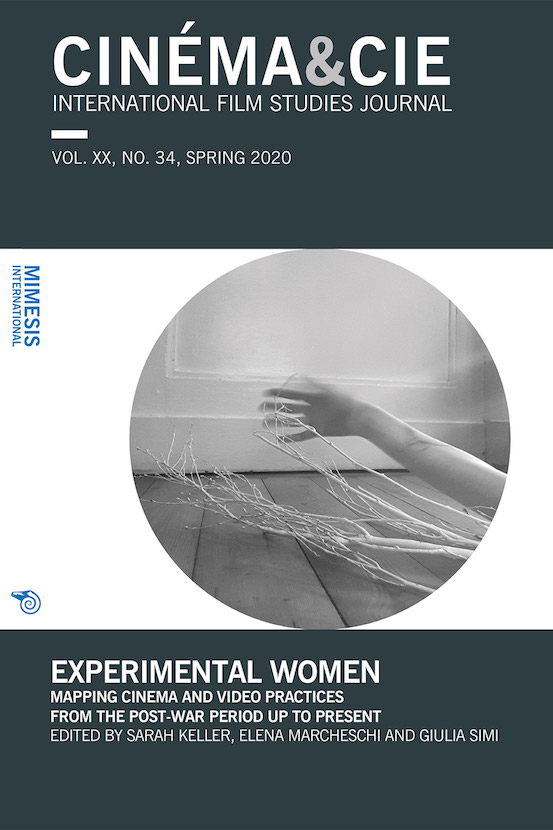Rediscovering Caroline Avery: Submerged Narrative, Affect, and the Legacy of Minor Cinema
Abstract
This article makes a case for Caroline Avery as one of the most compelling experimental filmmakers of the ‘minor cinema’ generation through a close analysis of her magnum opus, Midweekend (1986). In 2018, I conducted the first interviews with Avery since she began making films in 1982. Based on those interviews, this essay offers an historical and theoretical perspective on Avery’s work, situating her within the context of the 1980s-era avant-garde, investigating her memory-based poetics of cinema, and demonstrating her relevance to contemporary experimental media culture. More specifically, this article examines Avery’s contributions to what I call, following Tom Gunning, ‘submerged narrative’, an attenuated approach to narrative construction that privileges sense impressions, affective environments, and haptic surfaces over characters and causality — or, cultivating the ambiance of a story without providing an actual story. In the second half of the essay, I turn to the work of two contemporary artists, Michael Robinson and Mary Helena Clark, to argue that their similar ideas about affective narrative environments demonstrates the degree to which the ‘minor cinema’ has contributed to the establishment of a shared language within the avant-garde that younger artists can borrow from, revise, and extend.
Downloads
Downloads
Published
How to Cite
Issue
Section
License
Copyright (c) 2021 Cinéma&Cie. Film and Media Studies Journal

This work is licensed under a Creative Commons Attribution 4.0 International License.





